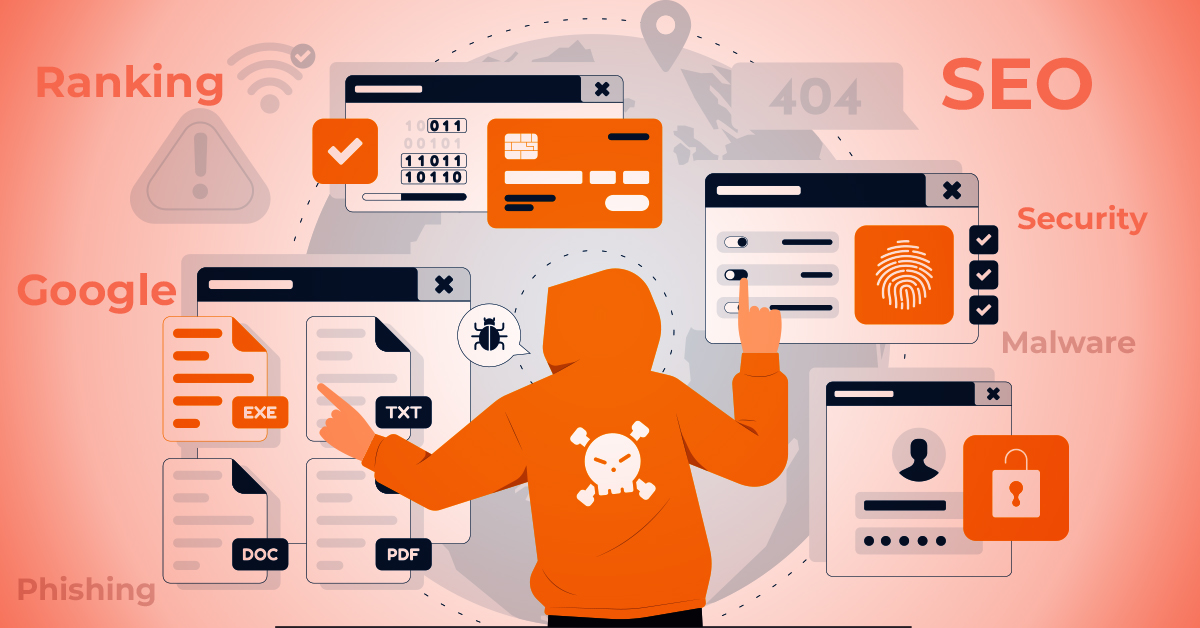Your SEO rankings may suffer if you don’t take adequate online security precautions. These are three ways that the security of your website can be harming your SEO.
People have become more knowledgeable about how to use the internet over time. Like anything else, humankind’s use of the internet has evolved naturally as new problems are encountered and potential solutions are tried out until the best one is discovered. After that, it is put into practice, and people move on to a better situation than they had before.
Some individuals may believe that they can always know if they are safe online. Simple advice like “just install a firewall,” “don’t give out personal information to dubious websites,” and “use unique passwords” has already been given. Nonetheless, cybercriminals do exist. They are significantly more skilled than the typical online user might anticipate and aim to harm websites and people. Because of their expertise, nobody would even be aware that their personal information was in danger until much later.
You must take website security seriously if you work in digital marketing. This is not only wise in general, but also because your SEO results are directly impacted by your usage of, or lack thereof, online security measures. Knowing that it is reasonably simple to do so will help you if you have been working on a website’s technical SEO and are now trying to expand into that area’s security.
Let’s examine a few ways that the security of your website can be influencing your SEO.
1. The first SEO ranking signal is HTTPS
The organic search rankings of a website must be earned, as any digital marketer is aware. Finding out what Google “wants” to see on a high-quality website is an easy mental trap to fall into, and there is somewhat nothing wrong with that. Yet as an SEO, your main objective isn’t really to appease Google. To satisfy users and provide for their needs and wants. And while doing so always entails providing people with pertinent, authoritative content, it also necessitates giving them access to outcomes that are almost certainly secure. The bottom line is this:
Users’ online safety is put at risk by unsafe websites, which could also hurt your SEO.
You must migrate to the HTTPS domain differentiation in order to safeguard the data on your website and demonstrate to users that you have done so. An SSL certificate must be purchased in order to do it.
These days, most popular websites use HTTPS, and if you don’t, you run the danger of appearing old and uninformed. This is a factor in why Google started using HTTPS as a ranking criterion a few years ago. There’s no reason you shouldn’t be investing in this as well if you’re already doing so in all other SEO-related areas. There are more than enough reasons for you to convert to HTTPS, even though it might not immediately improve your position in the SERPs.
2. Watch Out for Blacklisting
A lack of website security does not necessarily indicate malicious intent. But, the vulnerability of your website still leaves you extremely vulnerable to hackers. To get your SEO exactly perfect, you and your team invested a lot of time and energy.
No matter how long your website has existed or how much material it contains, you should always guard your intellectual property. Nobody wants to learn that their entire effort has been compromised. You risk losing everything if you don’t have any security measures in place for your website.
You might be surprised to learn that SEO is frequently the root cause of website hacking. If you’ve ever engaged in link building, you are aware of how crucial it is to collaborate with trustworthy websites. Regrettably, not everyone has the best intentions when trying to improve their SEO.
If you don’t have protection, someone may hack your website and add links to it. You might be unable to see this until it is too late. You can presume that if someone hacks your website for link building, they’re linking to websites you wouldn’t want to be linked with yours. This spam will be detected by search engines, which may blacklist your website. Security helps to safeguard the integrity of your website so that hackers won’t cause you to suffer consequences.
Even if you fix your website after being blacklisted, it could take some time to return to your previous ranking position.
3. Your Visitors Need to Know You’re Trustworthy
Many visitors to your website will probably be looking out for warning signs that it isn’t secure. They might immediately leave if they notice your URL lacks HTTPS. Yet, it is almost certain that they will depart as quickly as they arrived if they receive immediate alerts that it isn’t secure. Your website’s lack of security may be the cause of its high bounce rates. You can certainly go ahead and remedy the problem, but keep in mind that a number of users have already had a bad experience with your website. Credibility restoration requires time.
Make sure visitors to your site have a positive experience so you can improve this. Good SEO starts and ends with this. Why not invest the same time and effort into demonstrating to users that you respect their security when they visit your site as you have into improving the overall SEO of your website?
Conclusion
Even if you can’t immediately see the financial benefits of safeguarding your website, have faith that they will significantly impact your SEO in the future. If you can make even a modest SEO improvement, that’s fantastic.
Given that as a digital marketer, the user experience is your first responsibility, think about this application of the golden rule: how would you feel if you visited an e-commerce website, attempted to enter your credit card information, and saw the domain was simply HTTP?
If you find this scenario unsettling, make sure it doesn’t occur to any site visitors. Provide users with the SEO experience that you would enjoy. You owe it to your users to take all reasonable precautions to protect their data.
Need help? Check out one of my WordPress Maintenance subscriptions to help get your site on track and keep it that way!






